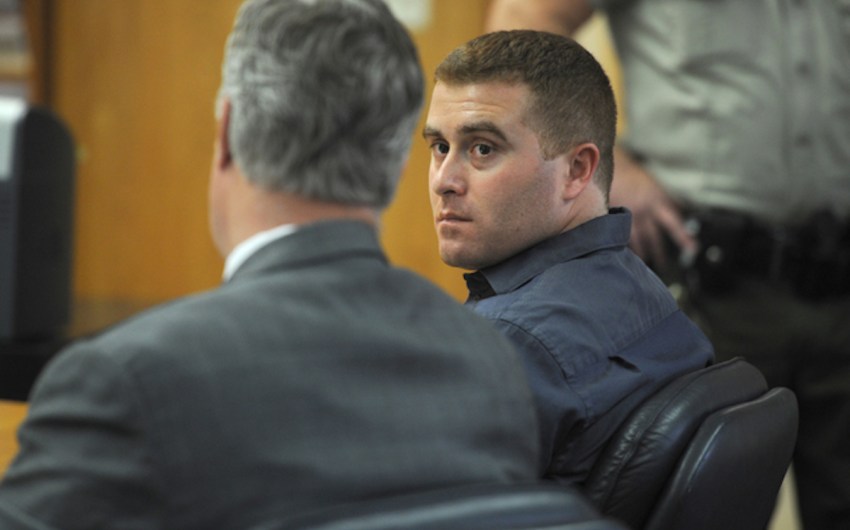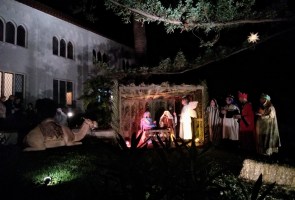ON the Beat | Kaleidoscope Ears on the Rhine River
An Iconoclastic Summer Escape Takes the Columnist to the Jazz/Improv-Fueled Monheim Triennale, on the Rhine River

This edition of ON the Beat was originally emailed to subscribers on July 11, 2024. To receive Josef Woodard’s music newsletter in your inbox on Fridays, sign up at independent.com/newsletters.

Picture yourself on a boat on a river. Free-ranging sounds call you; you listen quite raptly, to artists with kaleidoscope ears.
The picturesque process became a special reality for me last week at the invitation of the unique Monheim Trienniale II, taking place mostly on the docked good ship MS RheinFantasie. No, this was not your father/mother or son/daughter’s cruise ship diversion, but an intrepid experiment with social and inclusive implications beyond the notes and musical collaborations involved. Sixteen fine and innately adaptable and improvisation-ready musicians were pulled from a global rolodex of possibilities, including the famed trumpet master Peter Evans, saxist-deserving-wider-recognition Darius Jones, eminent German new music composer and pianist Heiner Goebbels, and up-and-comers from many worldly locales.
This still-young and unique variation on the jazz festival theme takes place in the Rhine River–hugged small (43,000 pop.) city of Monheim, between the urban outposts of Dusseldorf and Cologne, and a world away in many ways. A pleasant ambling walk along the Rhine and inward takes you to the humble old town (Altstadt), for a delectable dinner at the Ohter restaurant or the proverbial schnitzel plate at Pfannenhof. Meanwhile, the Trienniale’s musical fare and intentions are anything but quaint.


The festival is an inspired run by veteran jazz presenter and festival rethinker Reiner Michalke, for many years the director of the Moers Jazz Festival and founding director (now retired) of Cologne’s historic Stadtgarten venue.
Michalke was specifically “headhunted” for this project by Mayor Daniel Zimmermann. He has helped transform his town into a model progressive city, with a revitalization of the downtown formerly suffering from “bedroom community” doldrums (including a prominent Tony Craig sculptural triptych in the heart of town, pictured above), free child-care up to age 6, free public transportation, and city property given for the construction of mosques.
Not incidentally, Zimmermann has a proactive eye and ear on culture, having sought out Michalke for the Trienniale festival and green lit the fascinating (and controversial) public art piece “Geyser,” by Swiss artist Thomas Stricker. This piece, prominently placed in a roundabout on the Rhine, is an artificial geyser which issues its epic gush on command or through natural conditions, literally “stopping traffic” during its spout. During a city tour, Zimmerman said that part of the work’s “idea is to interrupt the city life, asking whether a public space is only about functionality.”


Daniel Zimmermann (far left) and Heinber Goebbels. Right: Ropbert Wilson ‘Yes There is Nowhere’ in Monheim | Credit: Vanessa Stratmann, Josef Woodard
Zimmermann also took us to the park setting where famed artist and stage designer Robert Wilson created a fascinating, folklore-based sound installation, Yes There is Nowhere, as part of last year’s “The Sound” element of the three-year cycle.
As part of the festival’s overall design, many different combinations — or as an announcer said, “constellations” — of musicians were presented over a dense three-day period, starting with a collage-like Round Robin concert introducing all the artists in overlapping sequential fashion. Among the festival highlights was the Electronic Quartet, The Horns, and The Voices (including dynamically elastic South Indian–born, Bay Area–based Ganavya Doraiswamy, a highlight of the fest).


Ganavya Doraiswamy (left) and Brighde Chaimbeul | Credit: Niclas Weber

True confession: for all the musical discoveries encountered over the festival, of individuals (such as the experimental Scottish bagpiper Brighde Chaimbeul and the evocative Palestinian electronic musician and “field recording” processor Mugata’a) and surprise groupings, Evans was the clear standout. His potent trumpet work, on piccolo trumpet and Bb trumpet, is a distinctive charismatic reckoning force, blending his interests in jazz, improvisation, and also scored new music (he appeared at the Ojai Music Festival with the group ICE in 2015, for example).
Evans’ solo performance in the intimate church setting of Marienkapelle, across the street from the boat homebase, completely blew my mind, as the kids say, on intellectual, primal, and other levels I’ve yet to process. Boatloads of musical content and intent, experimental verve, and emotional gymnastics were packed into a half hour of music. I had to take a long-ish bike ride on the Rhine — into the nearby countryside — to try to regain my bearings. They never fully returned.
In an extra-musical connection, the legendary Finnish Mika Kaurismaki and his crew were in town to shoot a feature documentary on the event, with the working title Five Days in Monheim. I spoke to Mika, brother of cinema icon Aki, at the festival HQ and hang zone of the Hey Lu hotel bar on the final night and asked if I would be making my debut in a Kaurismaki film when this comes out. An affable and idealistic sort, he smiled and said, “Yes, I actually got a shot of you just today.” Bucket list item: check.
I suggested to the director that it could be another in a long line of Kaurismaki brothers projects showcased at the Santa Barbara International Film Festival. Keep an eye out for the film, which will no doubt capture the enigmatic and idealistic energies unveiled on the good ship MS RheinFantasie.

Academy Notes
Voices rule on the Music Academy of the West calendar for the next week, the highlight of which is the presentation of the eagerly-awaited fully-produced opera, Carmen (see story on conductor Daniela Candillari here), on Friday night and Sunday afternoon at The Granada Theatre.
Another highlight of this year’s MAW season, from the living composer corner, lands at Hahn Hall on Saturday, July 13, when Timo Andres pays a sharply focused tribute to Philip Glass, whose work the pianist has been strongly linked to. Andres, along with faculty pianist Conor Hannick, will serve up the prix fixe feast of Glass’ complete Études for Piano Solo.
Glass fans can rejoice. Detractors, reconsider. Glass agnostics (present company) can ponder in real time.
To-Doings:
We’ve heard singer-songwriter-guitarist Alejandro Escovedo in numerous “constellations” over a handful of decades, including the punk band the Nuns and cowpunk pioneering band Rank and File (some of us recall the scorching show at Baudelaire’s back in the day). Catch up with Escovedo, still going strong at 73, when he hits the stage of SOhO tonight (Thursday, July 11), touring with his new/old YepRoc project Echo Dancing, on which he revisits and reshapes 14 of his songs.
Premier Events
Sat, Dec 21
11:00 AM
Santa Barbara
Mosaic Makers Market – Holiday Weekend Market
Sun, Dec 22
11:00 AM
Santa Barbara
Mosaic Makers Market – Holiday Market Finale
Wed, Dec 25
6:00 PM
Santa Barbara
FREE Contra Dance X-mas Day💃Corwin & Grace band6-9
Sat, Dec 21
11:00 AM
Santa Barbara
Mosaic Makers Market – Holiday Weekend Market
Sat, Dec 21
12:00 PM
Santa Barbara
Gift Wrapping with Life Chronicles
Sat, Dec 21
2:00 PM
Santa Barbara
State Street Ballet’s 30th Anniversary Production of ‘The Nutcracker’
Sat, Dec 21
4:00 PM
Santa Barbara
Wine + Painting Workshop
Sat, Dec 21
5:00 PM
Santa Barbara
The Rhythm Industrial Complex: Live at Fox Wine Co
Sat, Dec 21
5:00 PM
Santa Barbara
LET IT GLOW Winter Solstice on State St.
Sat, Dec 21
5:15 PM
Santa Barbara
The Longest Night Memorial
Sat, Dec 21
5:30 PM
Santa Barbara
First United Methodist Church Living Nativity
Sat, Dec 21
6:00 PM
Santa Barbara
Captain Fatty’s Ugly Xmas Sweater Party
Sat, Dec 21
6:30 PM
Santa Barbara
Ugly Sweater Singles 30s and 40s Party!
Sat, Dec 21 11:00 AM
Santa Barbara
Mosaic Makers Market – Holiday Weekend Market
Sun, Dec 22 11:00 AM
Santa Barbara
Mosaic Makers Market – Holiday Market Finale
Wed, Dec 25 6:00 PM
Santa Barbara
FREE Contra Dance X-mas Day💃Corwin & Grace band6-9
Sat, Dec 21 11:00 AM
Santa Barbara
Mosaic Makers Market – Holiday Weekend Market
Sat, Dec 21 12:00 PM
Santa Barbara
Gift Wrapping with Life Chronicles
Sat, Dec 21 2:00 PM
Santa Barbara
State Street Ballet’s 30th Anniversary Production of ‘The Nutcracker’
Sat, Dec 21 4:00 PM
Santa Barbara
Wine + Painting Workshop
Sat, Dec 21 5:00 PM
Santa Barbara
The Rhythm Industrial Complex: Live at Fox Wine Co
Sat, Dec 21 5:00 PM
Santa Barbara
LET IT GLOW Winter Solstice on State St.
Sat, Dec 21 5:15 PM
Santa Barbara
The Longest Night Memorial
Sat, Dec 21 5:30 PM
Santa Barbara
First United Methodist Church Living Nativity
Sat, Dec 21 6:00 PM
Santa Barbara
Captain Fatty’s Ugly Xmas Sweater Party
Sat, Dec 21 6:30 PM
Santa Barbara


























You must be logged in to post a comment.